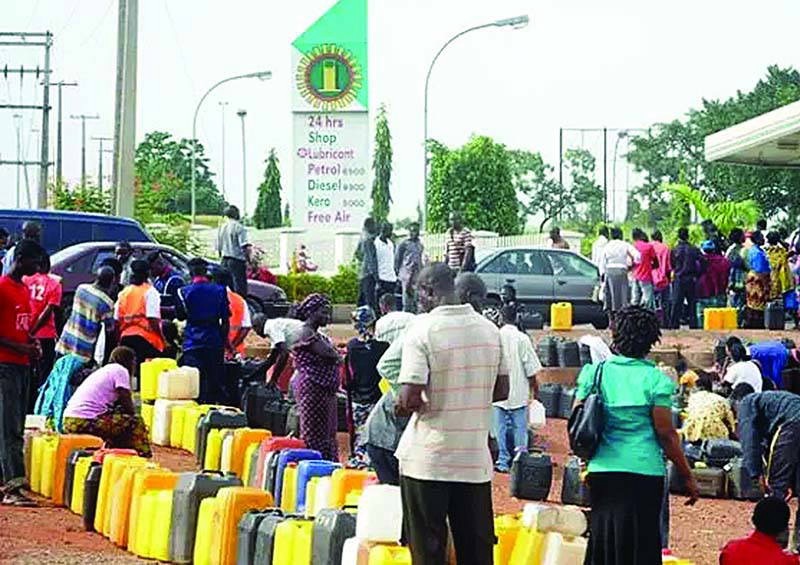By Olaitan Ibrahim
Nigerians are reeling from the latest fuel price increase, as the Nigerian National Petroleum Company Limited (NNPCL) adjusted the pump prices of Premium Motor Spirit (PMS) across the country.
The recent hike, announced on October 16, 2024, marks the third price adjustment since September 2024, with the retail price of petrol in Abuja rising to N1,060 per litre, up from N1,030. In Lagos, the price increased to N1,025 per litre, up from N998.
Alhaji Aliko Dangote, President of the Dangote Group, expressed concerns over the continued importation of petrol despite local production at the $20 billion Lekki-based refinery. Dangote emphasized that his refinery is not in the retail business and urged marketers to collect petrol from the facility.
Analysts predict that the latest price hike will exacerbate Nigeria’s inflation woes, which reached a 28-year high of 34.2% in June 2024. The increase is expected to drive up production costs, leading to higher prices of goods and services.

The Nigerian Association of Small-Scale Industrialists and the Nigerian Association of Chambers of Commerce, Industry, Mines and Agriculture have condemned the price hike, citing its devastating impact on local industries and the economy.
The NNPCL’s pricing strategy allows for fluctuations based on supply and demand dynamics. However, the company’s failure to provide official notification of the price increase has sparked confusion among marketers.
Petroleum Retail Outlets Owners Association of Nigeria’s President, Billy Gillis-Harry, expressed concerns over the price hike, urging the President to negotiate a N100 billion offer to stabilize petrol prices.
The fuel price hike is expected to worsen Nigeria’s economic hardship, with increased transportation costs and higher food prices.
The latest fuel price hike has sparked widespread outrage and concern among Nigerians, experts, and industry stakeholders. As the country struggles to recover from economic challenges, the NNPCL’s decision may exacerbate inflation, worsen hardship, and undermine local industries. Urgent action is needed to address the root causes of the price hike and ensure a stable fuel supply to mitigate the impact on Nigeria’s economy and citizens.